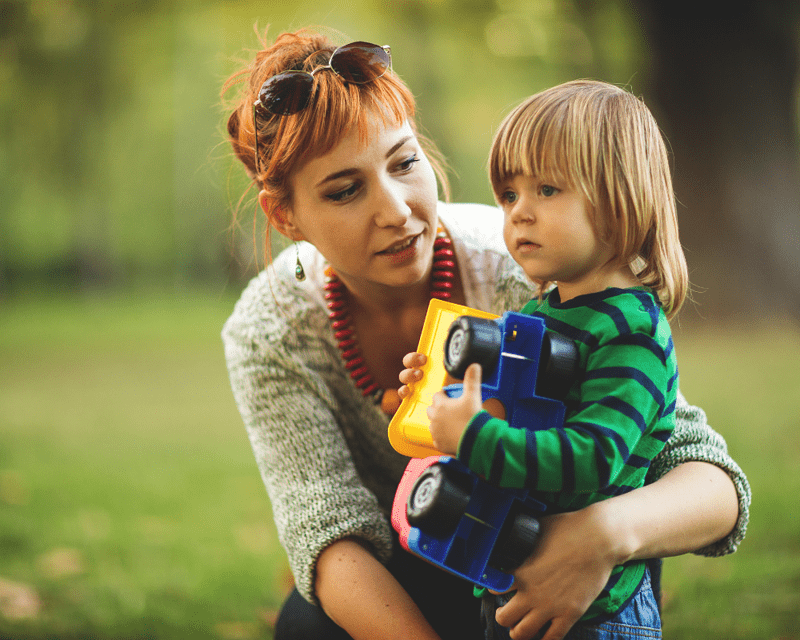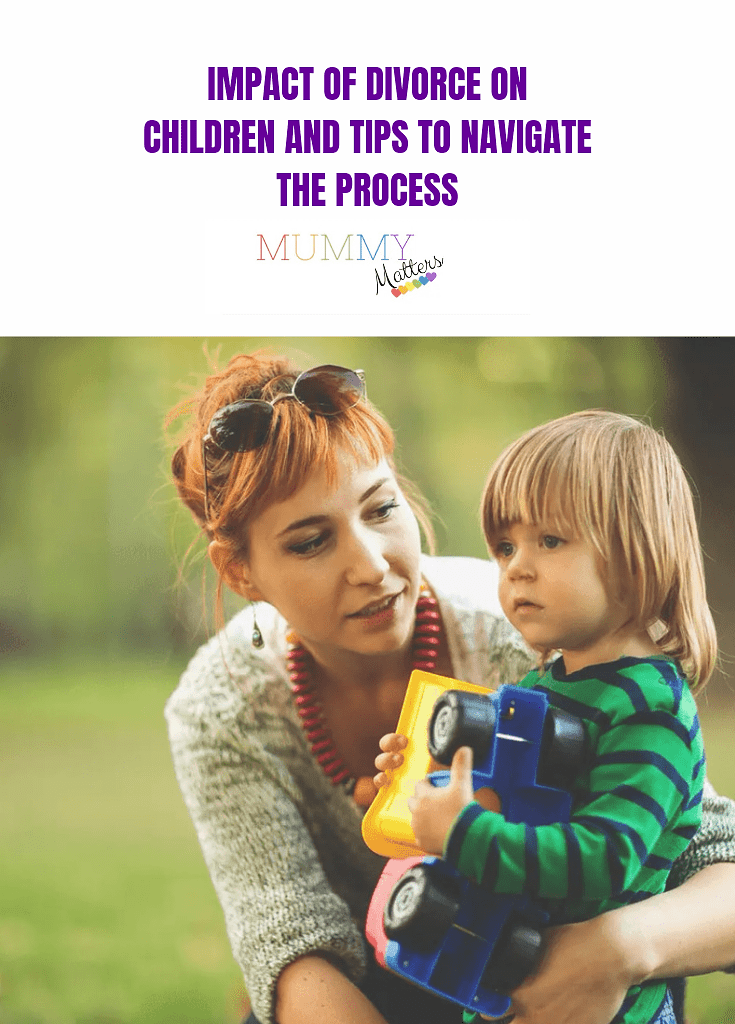Divorce is a challenging and emotionally charged experience, especially for parents. Going through a divorce can be difficult for everyone involved, but as a parent, navigating the process with care and consideration for your children’s well-being is essential. This blog will discuss tips and strategies for coping with change as a parent during and after a divorce.
Divorce is a challenging and emotionally charged experience, especially for parents. Going through a divorce can be difficult for everyone involved, but as a parent, navigating the process with care and consideration for your children’s well-being is essential. Before delving into the complexities of divorce and its impact on children, it’s crucial to acknowledge the importance of legal guidance. A consultation with the experienced attorney of divorce laws can provide clarity and direction during this tumultuous time. Understanding the costs of hiring a divorce lawyer is a practical first step for those in Florida. This blog will discuss tips and strategies for coping with change as a parent during and after a divorce.
Why it’s important to talk about this issue

Divorce is a common experience that affects many families. It’s essential to have conversations about navigating this process to support parents and children in coping with the significant changes that come with it. By discussing coping strategies and tips for parents during divorce, we can help ensure that children’s emotional and psychological well-being is considered during this challenging time.
Preview of the tips and strategies for coping with change
We will explore various strategies for coping with change during and after a divorce. Specifically, we will discuss the impact of divorce on children and offer tips for helping them navigate this transition. We will also advise parents to care for themselves during this time and co-parent effectively with their former partner. Finally, we will discuss legal considerations parents should consider during and after the divorce process. By following these strategies, parents can help their children navigate the divorce process with minimal emotional and psychological distress.
Understanding Divorce and Its Impact on Children
Divorce is the legal process of ending a marriage. It is a significant life change that can be emotionally challenging for everyone involved, especially children. The impact of divorce on children can be severe and long-lasting. Children may experience feelings of sadness, anger, confusion, and loss. They may also feel like the divorce is their fault or that they must choose between their parents. It’s good to hire experienced Kona family attorneys to ensure the children’s needs are considered during the divorce process. With proper support and guidance, parents can help their children navigate this challenging time.
A. Common reactions of children to divorce
Children react to divorce in a variety of ways. Young children may experience separation anxiety, while older children may feel embarrassed or ashamed about their family situation. Children may also have difficulty sleeping, experience appetite changes, or have trouble concentrating in school. Some children may act out, becoming more defiant or aggressive, while others may withdraw or become anxious.
B. Importance of considering children’s needs during divorce
It’s crucial to consider children’s needs during the divorce process. While it’s challenging for parents to go through a divorce, children are often the most vulnerable in these situations. They need stability, structure, and support during this time. Parents should minimize conflict and avoid putting children in the middle of disagreements. They should also listen to their children’s concerns and reassure them they are loved and supported.
Divorce can have a significant impact on children. They may experience various emotions and reactions; parents must consider their needs. Parents can help their children navigate this challenging life transition by providing stability, support, and reassurance.
Coping Strategies for Parents During Divorce

Divorce is stressful and emotional, and parents must care for themselves. Here are some coping strategies that can help:
A. Self-care strategies for parents during divorce
Taking care of oneself is essential during a divorce. Parents should prioritize their physical and emotional health. This may include regular exercise, eating well, getting enough sleep, and taking time for activities they enjoy. It’s also essential to seek professional help, such as therapy or counselling.
B. Strategies for managing emotions during divorce
Managing emotions during a divorce can be challenging. It’s common for parents to experience feelings of sadness, anger, and frustration. It’s essential to acknowledge and express these emotions in healthy ways. This may include talking to a friend or therapist, writing in a journal, or engaging in stress-reducing activities such as meditation or yoga.
C. Building a support system during divorce
Having a support system can be immensely helpful during a divorce. This may include friends, family, or professionals such as therapists or lawyers. Joining a support group can also be beneficial, as it allows parents to connect with others going through a similar experience.
Coping with a divorce can be challenging for parents, but taking care of oneself and building a support system can make a significant difference. Parents can navigate the divorce process by managing emotions and prioritizing self-care with greater resilience and strength.
Divorce can be a complex and confusing experience for children. Parents can help their children navigate this transition by providing support and understanding. Here are some tips for helping children during and after a divorce:
A. Creating a supportive environment for children during divorce
It’s important to create a supportive environment for children during a divorce. This may include maintaining a consistent routine, providing stability and structure, and reassuring children that they are loved and supported. It’s also important to avoid blaming or bad-mouthing the other parent in front of the children.
B. Strategies for talking to children about divorce
Talking to children about divorce can be challenging, but being honest and direct is important. Parents should use age-appropriate language to explain what’s happening and why. Encouraging children to express their feelings and ask questions is also important.
C. Supporting children’s emotional needs during divorce
Children may experience various emotions during a divorce, including sadness, anger, confusion, and anxiety. Parents can support their emotional needs by listening, validating their feelings, and reassuring them. It’s also vital to help children develop coping skills, such as deep breathing or journaling.
Divorce can be a challenging experience for children, but parents can help by creating a supportive environment, talking openly about the situation, and supporting their emotional needs. Parents can help their children navigate this difficult time with greater resilience and strength by providing love, stability, and understanding.
Co-Parenting Strategies for After Divorce

After a divorce, co-parenting can be challenging, but it’s essential for children’s well-being. Here are some strategies for effective co-parenting:
A. Importance of co-parenting for children’s well-being
Co-parenting is critical for children’s well-being after a divorce. It provides a sense of stability, consistency, and predictability. It also allows children to maintain a close relationship with both parents, which is essential for their emotional and psychological development.
B. Strategies for effective co-parenting
Effective co-parenting involves cooperation, communication, and flexibility. Parents should work together to develop a parenting plan that meets their children’s needs. This may include establishing a consistent schedule, agreeing on rules and expectations, and sharing information about their children’s activities and requirements.
Effective communication is essential for co-parenting. Parents should aim to communicate regularly and respectfully, avoiding criticism or blame. They should also be willing to compromise and adapt to changing circumstances.
C. Addressing challenges that may arise during co-parenting
Co-parenting can be challenging, and conflicts may arise. It’s important to address these challenges constructively and respectfully. Parents may benefit from seeking mediation or professional help to resolve disputes.
It’s also necessary to prioritize the children’s needs above personal differences or conflicts. Parents should avoid putting their children in disputes or using them as messengers.
Effective co-parenting is critical for children’s well-being after a divorce. Parents can work together to support their children’s emotional and psychological development by prioritizing communication, cooperation, and flexibility. Addressing challenges constructively and keeping the children’s needs at the forefront can help co-parenting be a positive experience for everyone involved.
Legal Considerations for Divorcing Parents

Divorce involves legal considerations that parents should consider to protect their and their children’s interests. Here are some legal concerns to keep in mind during divorce:
A. Overview of legal considerations during divorce
During a divorce, parents must decide about property division, alimony, child custody, visitation, and child support. These decisions will be outlined in a parenting plan or custody agreement, becoming a court order. It’s essential to carefully consider these decisions and work with a lawyer to ensure they align with your and your children’s best interests.
B. Importance of consulting with a lawyer during a divorce
Consulting with a lawyer during a divorce is crucial to understanding legal rights and options. A lawyer can guide the legal process, explain legal terminology, calculate the fair alimony amount, and advocate for your interests. They can also help negotiate a fair settlement or represent you in court if necessary.
C. Addressing custody, visitation, and child support issues
Child custody and visitation are the most challenging legal considerations during a divorce. Parents should prioritize their children’s needs when deciding custody and visitation. It’s essential to work collaboratively to develop a parenting plan that considers each parent’s work schedule, living arrangements, and the children’s needs.
Child support is another critical consideration. Child support payments are intended to provide financial support for the children’s basic needs, including food, clothing, and housing. The amount of child support is typically based on state guidelines and depends on factors such as each parent’s income and the children’s needs.
In summary, legal considerations are a crucial aspect of divorce. It’s essential to consult with a lawyer to understand legal options and rights, address custody, visitation, and child support issues, and prioritize the children’s well-being in all decisions. By working collaboratively and seeking legal guidance, parents can protect their and their children’s interests during a divorce.
Conclusion

Divorce can be a challenging and emotional experience for parents and children alike. However, with the right strategies and support, parents can navigate this transition and support their children’s well-being. Here is a recap of the key points discussed in this blog:
- Understanding divorce and its impact on children is critical for supporting their well-being during and after a divorce.
- Coping strategies for parents during divorce, including self-care, managing emotions, and building a support system, can help parents navigate the process with resilience and strength.
- Tips for helping children navigate divorce, including creating a supportive environment, talking openly about the situation, and supporting emotional needs, can help children adjust to the significant changes that come with divorce.
- Effective co-parenting strategies, including communication, cooperation, and flexibility, support children’s well-being after a divorce.
- Legal considerations, including consulting with a lawyer and addressing custody, visitation, and child support issues, are critical for protecting parents’ and children’s legal rights and interests.
Navigating divorce as a parent is never easy, but it can be a manageable and positive experience with the right strategies and support. It’s vital to prioritize children’s well-being during and after a divorce and to work collaboratively with your former partner to develop a parenting plan that meets everyone’s needs. Remember to take care of yourself during this process, seek help, and communicate openly and respectfully with your children and former partner.
Additional resources for parents going through a divorce
If you or someone you know is going through a divorce, many resources are available for support. Consider seeking guidance from a therapist, counsellor, or support group. Additionally, legal aid organizations can provide low-cost or free legal assistance for those who cannot afford a lawyer. Finally, online resources, such as articles, blogs, and forums, can provide helpful information and support during this challenging time.

